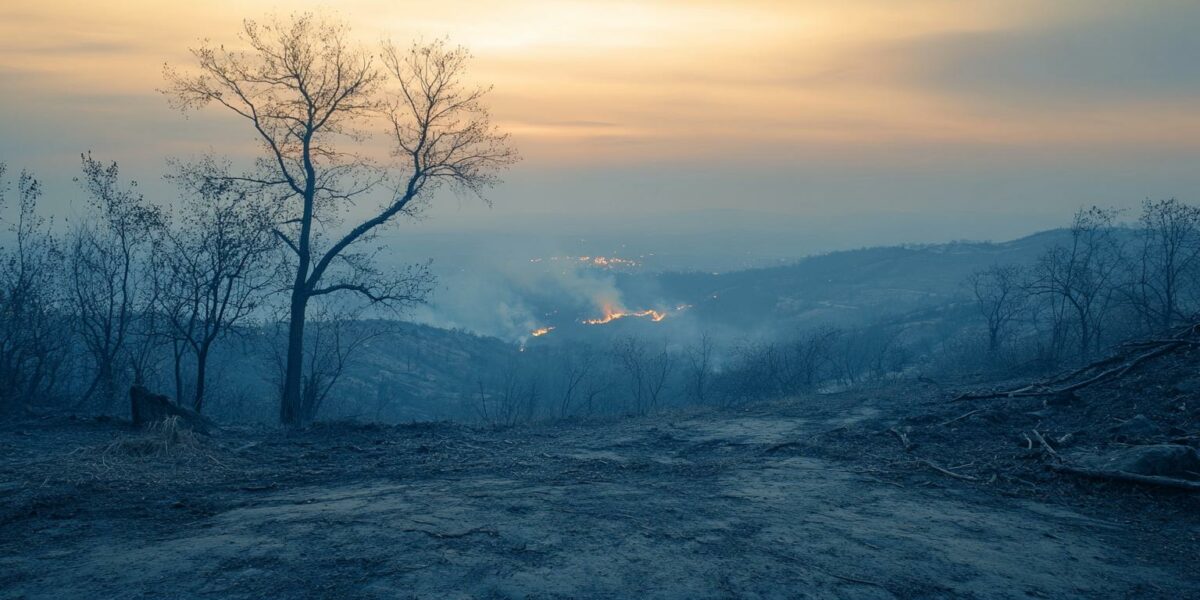The Dire Need for Immediate Climate Action
According to the UN’s environment chief, the time has come for urgent action to combat the climate crisis. With carbon emissions needing drastic reductions, a substantial global shift toward renewable energy and protective measures for forests is essential to avoid a disastrous 3.1C temperature rise.
Current efforts to cut emissions are lacking, with countries falling short of their 2030 targets. Even if met, these targets would still result in an alarming temperature increase of 2.6C to 2.8C. The report emphasizes the necessity for nations to make substantial commitments at the upcoming Cop29 summit.
Achieving the international goal of a 1.5C temperature limit is technically feasible, but it requires a consistent annual reduction in emissions of 7.5% until 2035. This equates to eliminating emissions equivalent to those of the European Union every year for the next decade.
Nations must collectively aim to reduce their annual greenhouse gas emissions by 42% by 2030 and 57% by 2035. Without these pledges and decisive action, the goal of limiting global warming to 1.5C will become unattainable.
Overcoming Political and Financial Barriers
Inger Andersen, the head of Unep, stressed the importance of not fixating solely on the 1.5C target. Every fraction of a degree of warming avoided is crucial, as it prevents further damage and costs. The finance and technology necessary to make these changes are available, but political determination is lacking.
The G20 nations, responsible for 77% of global emissions, must demonstrate courage and leadership. The world made significant climate promises in Paris in 2015, and now is the time to fulfill them. A massive global mobilization is required to keep the 1.5C goal alive.
Key strategies include:
- Rapid deployment of solar and wind energy
- Halting deforestation and improving energy efficiency
- Electrifying buildings, transportation, and industry
These measures are not only feasible but economically beneficial. The technology is ready, and the opportunities for job creation and economic development abound.
The Role of Global Leaders and Institutions
UN Secretary-General António Guterres highlighted the dire consequences of continued inaction. Global warming is intensifying extreme weather events, causing extensive damage. It’s imperative for governments to reduce dependence on fossil fuels and implement a fair and rapid phase-out strategy.
Unep’s report identifies the potential for solar and wind energy to account for 27% of the necessary emissions reductions. This is a proven and cost-effective solution, making investment in these technologies a wise choice.
Stopping deforestation could contribute an additional 20% in emissions cuts. Further reductions can be achieved through energy efficiency improvements and reducing methane emissions from fossil fuel operations.
Investing $1-2 trillion annually, a modest 1% of the global economy’s value, could drive emissions to net zero. Developed nations may find this feasible, but financial support from wealthier countries is crucial for developing nations, a key topic for Cop29.
Global Cooperation and the Path Forward
Despite geopolitical challenges, there is hope for collaboration in addressing climate change. Recent G20 environment and climate minister meetings have shown that progress is possible, even among nations with significant differences.
Major policy shifts in countries like the US, China, Germany, India, and Brazil demonstrate potential for a greener future. However, a more extensive effort is essential to achieve meaningful progress.
By aggressively pursuing a low-carbon, sustainable future, we can save lives, reduce financial burdens, and protect our planet’s crucial systems. The urgency cannot be overstated – the time to act is now.
World leaders must prioritize climate action over the interests of the fossil fuel industry, especially those from wealthier nations that have contributed significantly to the current crisis. Cop29 is an opportunity for them to fulfill their responsibilities and drive meaningful change.



rosequasar
These goals seem impossible. How are we supposed to achieve a 42% reduction by 2030?
harperzen
Time to start building that solar farm in my backyard, I guess! 🌞
henry_artemis
Great, another report telling us we’re doomed. What’s the point if no one listens?
FaithIllumination
Can someone explain why it’s so difficult for countries to agree on these targets? Isn’t it in everyone’s interest?
Grayson_Labyrinth
Thank you for sharing this crucial information! It’s a wake-up call for all of us.
kevindreamweaver2
3.1C rise? That’s more terrifying than a horror movie! 😱
Shadow
Does anyone else feel overwhelmed by the constant stream of climate reports? It’s hard to stay optimistic.
Charlie
Every year it seems like we’re running out of time. When will politicians actually step up? 😞
muffin
Wow, this is truly alarming! How can we as individuals contribute to reducing emissions? 🌍